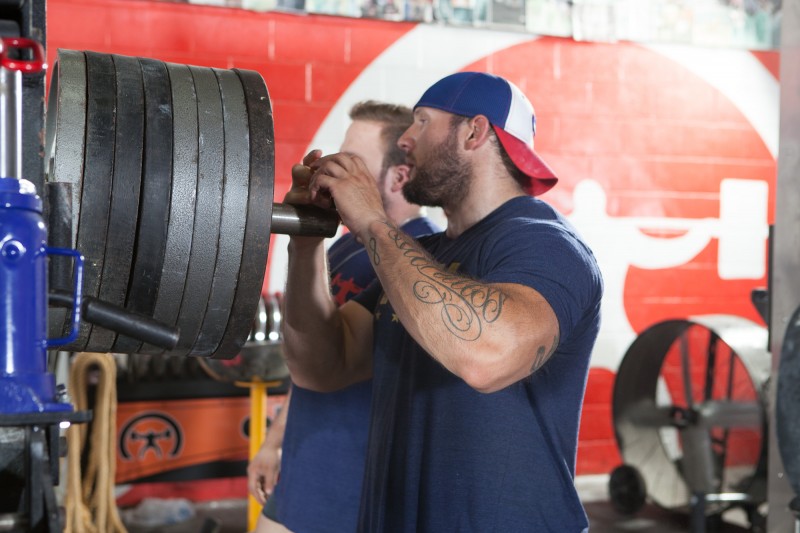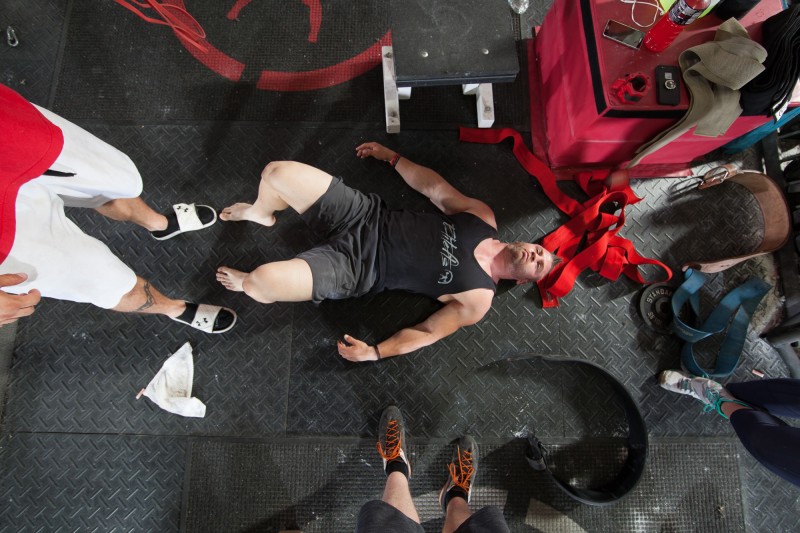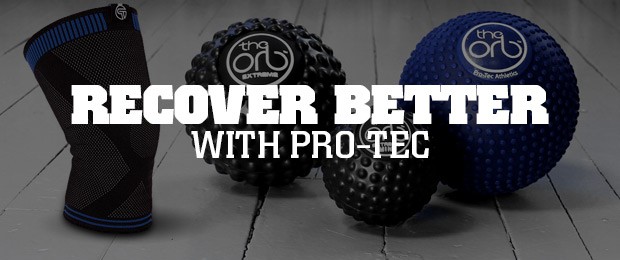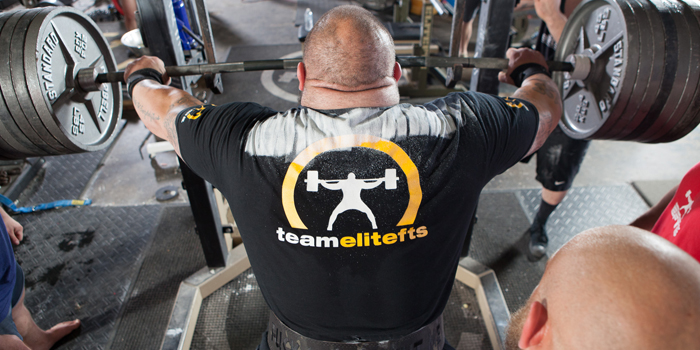
elitefts™ Classic
I highly recommend you read part one, part two, and part three of this series before continuing on. This part in particular bears repeating:
These tips are based on my own experience(s) as an elite-level lifter, training with other pro and elite-level lifters, being coached by elite lifters, and working with and coaching other elite lifters. These are not in any specific order of importance and will not pertain to everyone. These are the things I find myself repeating over and over again with different lifters. It should also be noted that I would NOT suggest many of these things to anyone who falls outside this target athlete. To make this point even more clear: if you are not an elite or pro strength athlete, many of these suggestions should NOT be applied and they very well could destroy your lifting career or make you suck on the platform. Now, go back and read that one more time. This is not a statement I am writing that is intended to make these look “top secret.”
Technique and Skills
As an advanced lifter, technique is without a doubt the most important factor when it comes to breaking records. Your technique needs to be spot-on. If you're one inch too far forward or one inch too far back, you will miss the lift. The heavier the weight gets, the more unforgiving your body is when it comes to falling out of the technical position. How many times have you really missed a weight due to strength? Now compare that to how many times you have missed a weight because of some slight technical issue. You can argue the point that it's a muscular breakdown or imbalance that is causing the technical breakdown, and this is true in many cases, but not as many as most think.
From what I can tell, lifters in the beginning and intermediate stages put a lot of focus on making sure their technique is right. If there is a breakdown, they learn what to do to fix it. As the lifter progresses to more advanced levels, many of the simple things begin to be taken for granted, so as the weights go up and they become stronger, they slowly began to compromise their technique in small ways that go unnoticed.
Their technique will never become a complete disaster, but when you are an advanced lifter moving maximal weights, one slight breakdown can be the difference between a white and red light. I have been around elite and pro lifters for the past 20 years and can say everyone has technical issues. Even those you think have perfect technique can have issues if the weight gets heavy enough, if they're overtrained, injured, or worn-out.
I should also note that one technique isn't always the best for everyone. There are certain things that are standard, but every lifter will have their own technical style and this needs to be accounted for when assessing if there's a breakdown or not. This style may be different due to limb length, body structure, or injury history.
RECENT: Top Training Tips For Advanced Lifters — The Last Two Weeks, Coaching, and Programming
To get to the point, regardless of your level of competition you must focus on your technique at all times. Every time you do the lift, from barbell to max weight, you must practice and focus on your technique. While there's no such thing as perfect, you must strive to get as close to it as you can.
If you really want to see this in action, find some videos of any elite or pro lifter. It doesn't matter if they're raw, full gear, or single-ply. Look at their technique. Then, go find some videos of beginner or intermediate lifters doing the same lift. Now ask yourself what comes first: the strength or the technique? Now, some will say the stronger you get, the better your technique will be (and I agree), but this is true only to a point. We all know lifters with outstanding technique who can out-lift others that are stronger than them, but that is only because the stronger guys' technique is flawed.
Injured, Hurt, and F**ked Up
Welcome to the world of strength sports. I was once told, "If you're gonna lift big weights, you're gonna get hurt." How true this is. While there are many things we can do with programming, prehabilitation, and better warm-ups, when you push yourself to the limit, there’s always the chance (a very good one) that you will exceed this limit and end up getting injured. Before I continue, I should define how I see this. (Note: I said how “I” see this. I’m not a physical therapist, doctor, or anyone who is qualified to give advice on the diagnosis or rehabilitation of injuries.) What I’m going to present is how I personally worked around and through these issues. It can be debated that my way failed, as I have some things that are f**cked up. Take what I say with a grain of salt, and if you do have any questions in regard to injuries, see a real professional. With that said, the way I defined this was…
Injured
This is the normal stuff advanced lifters deal with from day to day. It doesn’t hinder your strength, doesn’t get better, and doesn’t get worse. This can be sore elbows, shoulders that hurt when you sleep, or just about anything else that hurts during your first few warm-up sets but gets better with each set. By the time you get to your work sets, you don’t notice it at all. For many lifters, the best they feel is while they're training. It’s the rest of the day that is rough. I’m not saying you should ignore these issues, but there are those things that just come with the territory. Ice, heat, stretch and do more warm-up sets. Usually, these things will work themselves out over time — or get worse. For me, most worked themselves out over time.
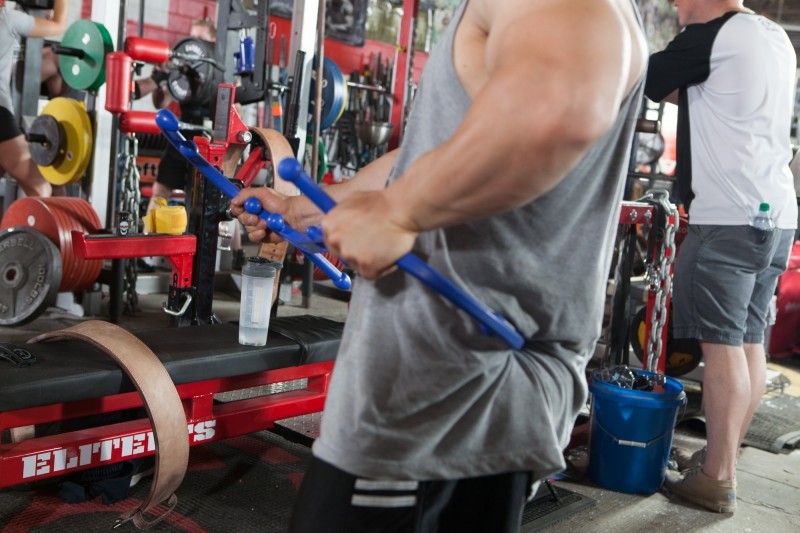
Hurt
This is when something tears, pulls, strains or leaves you with some limited mobility. These are much harder to train around because there's a loss of function. It is best to take some time and rehab these unless you're hard-pressed and don’t have enough time because of a meet that’s coming up. This is where I feel I personally made some of my biggest mistakes. I'd tear a pec five weeks out and instead of resting and rehabbing, I found ways to work around it. This is the same with shoulders, hamstrings, lower back, etc. Some of the times I could pull it off and still hit PRs, but in almost all cases what I had to do to get ready and stay training did more damage in the long run. I don’t regret my decisions because it helped me so that now I can access and help others who get caught up in the same situation.
Note: If you're an advanced lifter and do get asked about how to work through an injury, you are at risk for the advice you give. I highly suggest you know and trust the person you're giving advice to and always emphasize that it's what YOU did. Don’t ever tell them to do anything. NEVER answer this for complete strangers you don’t know.
Fucked Up
This is when there are permanent issues that will change the way you have to perform a lift. Some examples include bones spurs in your elbow, wrecked shoulders, hips, and so on. Many of these can be fixed, but will require surgery. Sometimes the surgery will help, but even after that and the rehab, you will still be slightly fucked up and will have to modify and make changes to your training and/or technical form.
The key in all this is to NOT get fucked up. The longer you can stay away from that, the longer you will be successful in the sport. Don’t be a pussy and become gun shy and scared to get hurt, but at the same time don’t become completely reckless when you can always take some extra time off and come back stronger and healthier. I was that guy who was completely reckless, and I’m here to tell you it didn’t work. Eventually, you will become so fucked up you'll have some very hard decisions to make. While I feel it’s better to leave a sport on your own terms, I also understand there are many out there that won't be able to do that, and I totally understand that.
I will also say I’m not 100% sure how I feel about all the warm-up tools, exercises, and protocols on the market. I think most of these are best used post-training and the best warm-up you can do is to triple or quadruple your warm-up sets. Others may and will disagree, but this is what I found most effective and still do today. But I do a lot of warm-up sets. I will not move up in weight until I feel my body is ready for it. If I'm bench pressing, this could mean 10 sets before 135 hits the bar.
Once again, take this with a grain of salt and understand that I’m one of those who left the sport for a few reasons, but one of the biggest was because I was so fucked up.
Shut It Down
This will be a short one and another one I never did correctly but saw correctly at the last UGSS we hosted at elitefts. Brian Carroll was sick a couple days before making the trip and decided to pass on squatting Saturday and instead squatted and benched on Sunday. Despite having the flu, dropping tons of weight, and getting reloaded, his squats went very well. He was a bit slower than I saw him in the past, and he decided to take a pass on his last set with reverse bands. He did get in a heavy single in the 1150-pound range, so overall it was a good session for being a couple weeks out.
His bench, however, wasn’t going as well. He was working down on boards, and aside from his technique not being able to stay locked in, you could see he was missing his normal pop out of the bottom. After about 80% of his sets were done, I overheard him speaking to Jeremy Frey and they decided it was time to shut it down for the day. They did discuss several options before this, such as taking a lighter weight for reps or going back up to higher boards, but when it was all said and done, they knew the day was shot and anything he did past this point would do more damage than good. This is called SMART lifting. There's no doubt in my mind that Brian could've gotten himself fired up, hit some smelling salts, and gone into competitive mode to knock out one more set. But for what? He was two weeks out and the last thing he needed (while still recovering from the flu) was to tax his recovery even more.
I sat back and thought to myself, "I wish I would have made more decisions like that." There's no doubt that there are times that you have to push through because you're just not “into it,” but there are other times when you really need to shut it down. The trick is knowing the difference.









